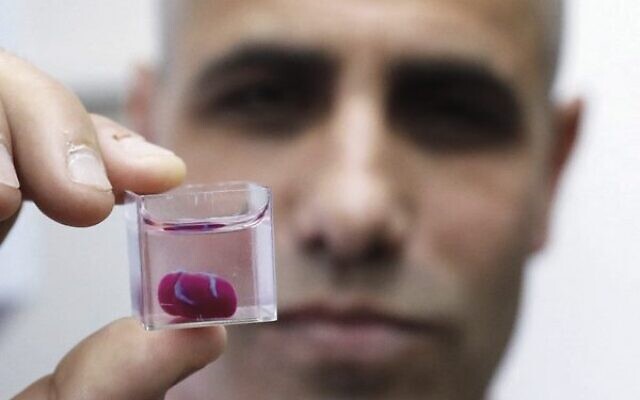Israel seeks to bring the future closer
"We are funding experiments in tech fields with a huge market potential that do not have regulation, or full regulation, or regulatory processes for approval," Sagi Dagan...

(TIMES OF ISRAEL) – In the future, walking robots will deliver same-day orders to your doorstep, 3D-printed organs will become a reality, and children and youth will be kept safe at schools and campuses, according to a vision being advanced by the Israel Innovation Authority.
The IIA – the body that is responsible for the country’s innovation policy and which provides the majority of state grants to companies involved in research and development – is pushing a new initiative to help start-ups develop disruptive technologies in three areas: autonomous home deliveries, bio-convergence and education.
A NIS 40 million ($A16 million) program was announced this month by the IIA to fund tech solutions in these three areas, while helping create the necessary regulatory framework.
“The program is designed to propel Israeli technological leadership in the selected sectors,” said IIA’s CEO Dror Bin. “We are focusing on areas that we believe have tremendous growth potential, and in which Israeli technology companies have a relative advantage as well as the possibility of leading the development of innovative products that will change the world.”
The idea of the program is to foster synergy among different companies and technologies that will work together, with regulators creating what the IIA calls a “regulatory sandbox” of trial and error for demonstrating the technology and proving its feasibility, and creating a business model for the products.
“We are funding experiments in tech fields with a huge market potential that do not have regulation, or full regulation, or regulatory processes for approval,” Sagi Dagan, vice-president of the IIA’s strategy division, told The Times of Israel. “We are establishing regulatory sandboxes with local companies that do not exist globally to provide the Israeli high-tech sector with a promising way to create competitive advantages over its global competitors.”
As part of the initiative, the IIA is calling on Israeli start-ups to submit proposals to get funding to develop solutions for solving pressing technological challenges in fields including home or “last mile” delivery, AI-powered clinical trials combining biology and engineering, and motion analysis-based security for educational institutions such as schools and campuses.
The second area earmarked by the initiative is bio-convergence, a growing industry with a market size of $120 billion in 2022 that integrates biology with additional disciplines from engineering such as electronics, AI, physics, computer science, nanotechnology, material science and advanced genetic engineering, in a bid to meet global health challenges. The IIA selected bio-convergence for the program as an emerging sector that presents significant technological and regulatory challenges.
For this part of the initiative the IIA, in collaboration with the Health Ministry, is seeking to help companies in the early stages of their technological development facilitate rapid entry into clinical trials in Israel as well as breakthrough into global markets.
With the rise in violent incidents in schools, the IIA will also select start-ups presenting innovative technological solutions to ensure security in educational institutions. The start-ups will work together with the Israel Police’s security division, the Finance Ministry and the National Security Ministry to solve challenges and fill gaps in this field. By 2030, this field is expected to show an average annual growth of 19 per cent, primarily due to the growing need to keep children safe, the IIA said.

comments